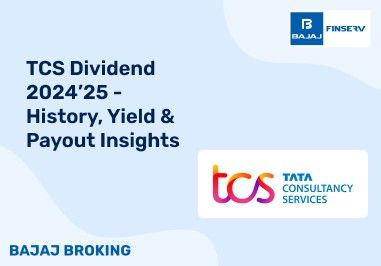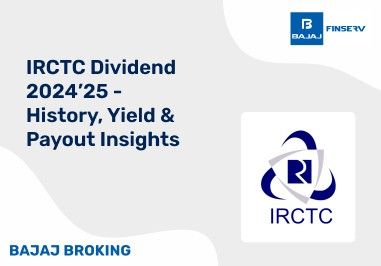What is Personal Finance?
When an individual or a household manages its money, it is called personal finance. It may sound a bit too simple, but it includes all decisions related to the management of finances at an individual’s or a household’s level. The scope of personal finance is vast, as it includes budgeting, saving, banking, mortgages, insurance, investment, and even retirement planning.
What is the Meaning of Personal Finance? Understanding in Detail
Having understood what personal finance is, let us delve a bit deeper into it. You can manage your money on your own or you can take the help of a financial advisor to do it. The personal finance industry in India is huge, and it helps individuals manage their money. Whether you manage your money yourself or you take the help of a financial advisor, both fall within the ambit of personal finance.
But what is the objective of personal finance? Its broad objective is to help you achieve your personal financial goals. For example, you want to save enough for your retirement or you want to create a fund for your child's education or you want to save money so that you have sufficient funds in the next ten years to build a house.
Managing, saving, or investing money for an individual’s or a household’s objective is called personal finance. Now that we have explained the meaning of personal finance in detail, let us understand its importance.
The Importance of Personal Finance
Whether you are an individual or a household, it is easy to understand the importance of personal finance. It involves all kinds of decisions you make regarding your budgeting, income, savings, investments, and even protecting yourself and your family against uncertainties (e.g., by taking an insurance policy and estate planning). If you do not manage your finances well, it is likely that you will face a financial crunch when it comes to unforeseen events, like a sudden illness or unemployment.
Hence, regardless of who you are and which income bracket you fall in, you have to manage your finances by using the best practices of personal finance. This is especially important in a country like India, which has a much higher rate of inflation than developed countries. Hence, money loses its value much faster here than in other countries. Besides, we still do not have enough institutions (healthcare, old age, etc.) which can help all of us when we need. Hence, it is absolutely important to manage your money so that you do not face a problem when dealing with an unforeseen event.
Additional Read: What is Demat Account: Importance, Features and Types
Real-Life Example of Personal Finance
Let us take an example of personal finance to illustrate this concept. Assume that a couple in their 30s have two kids, aged 4 years and 2 years. Their total yearly income is ₹20 lakhs. The couple wants to create a fund for their kids, especially for their post-graduation (PG). The first thing they need to analyse is how much they save every year and how much money they will need for their children’s PG.
The couple examines their expenditure and figures out that they spend around ₹14 lakhs every year, which means their savings are ₹6 lakhs per year. They figure out that a PG degree currently costs Rs 25 lakhs (including everything) in India. They need to estimate how much it will cost 20 years from now. As they plan, they realise that they need a lot of data and expertise for it. Hence, they decide to approach a financial advisor.
That advisor has to know the average inflation rate in India in the education sector, especially for a PG degree. Then, he needs to calculate how much two PG degrees are likely to cost 20 years from now.
After this, he will have to ask the couple at what rate their savings can grow over the next 20 years. Then, he will have to decide how to invest their savings (equity, fixed deposits, mutual funds, etc.) so that they have sufficient money for the post-graduation of their kids. This example illustrates that saving for a goal can be quite complex, as it requires you to make a number of calculations. Hence, if you are struggling to make a personal finance decision, it is advisable to approach a financial expert, who can help you.
Areas of Personal Finance
Income: Any personal finance decision starts with knowing how much income you earn. Then, you need to allocate your income to your various needs. For example, you have to decide how much you will save and invest. Also, please keep in mind that income includes all sources of cash inflows, including salaries, dividends, business earnings, etc.
Spending: Here, you decide how much you will spend on various expenses, which can be rent of your flat, mortgage, groceries, children's education, hobbies, repairs of home and other assets, travel, etc. Whether you are an individual or a household, you have to ensure that your income is more than your spending. Otherwise, you will have to take a loan and you may fall into a debt trap, which can be devastating for you and your family.
Saving: Savings are what is left of your income after you have paid all your expenses. Everyone should save for two reasons. First, your savings, when invested wisely, help you realise your financial goals. Second, savings help you deal with emergencies. No matter who you are, you should have some savings to deal with the fluctuations in your income and expenses. Suppose your employer shuts his business suddenly and you are out of work. In such a case, your savings can help you. That said, you should also realise that it is not wise to keep all your savings in a bank account because inflation will affect their value. Hence, after keeping a buffer for fluctuations in income and expenses, you should invest the rest of your savings to earn a sizeable return over time.
Investing: All individuals must invest a part of their savings. For investments, they can consider options, like stocks, mutual funds, bonds, real-estate, etc. You invest so that you earn a higher return on your savings than inflation. If you earn a lower than inflation rate, then the real value of your savings will diminish over time.
Protection: All individuals and households need to protect themselves against risks. For this, they can take insurance (e.g., health insurance plans, pure life cover, etc.). Such protection ensures that your and your family’s well-being is taken care of even in the case of unforeseen events, like untimely death, etc.
How to Build a Personal Finance Strategy?
Income: You need to know how much income you earn in a year, excluding taxes. As discussed earlier, you should consider all your sources of income. For example, it can be your salary, dividends, interest on your fixed deposits, rent from a property, etc.
Spending: You should ensure that your spending does not increase at a higher rate than your income. Because if your expenses increase faster than your income, your savings will get affected. In the worst case, you will not be able to save anything.
Saving: You should save enough to build your assets or realise a long-term goal (e.g., education and marriage of your kids). And, you must save enough to deal with unforeseeable events, like unemployment or sudden illness.
Investing: When it comes to investments, risks and rewards go hand-in-hand. For example, investment in shares is riskier than fixed deposits. However, shares can provide you with a much higher return than fixed deposits. So, you should carefully examine the risks and rewards of a product before making an investment. And, you must know how much risk you can take. Typically, young people can take more risks than old people because they have more productive years ahead in their lives.
Protection: To protect yourself and your family, you must take an insurance policy that meets your needs. That said, you should not treat insurance as an investment. The idea of insurance is to get protection against a risk. However, the objective of investment is to earn sizeable returns considering the risk involved in an investment.
Conclusion
It is not tough to understand how personal finance works; however, it requires discipline and knowledge to manage your finances. If you find it difficult to manage your money, you should consider going to a financial advisor.
In case, you have the knowledge to do it yourself and you are in the Indian stock market, then you should definitely open a trading account. With a demat account, you will be able to invest in equity, debt, bonds, mutual funds, etc. That said, you should first decide the objective of your investment and then you must make an investment.
Disclaimer: Investments in the securities market are subject to market risk, read all related documents carefully before investing.
This content is for educational purposes only. Securities quoted are exemplary and not recommendatory.
For All Disclaimers Click Here: https://bit.ly/3Tcsfuc














